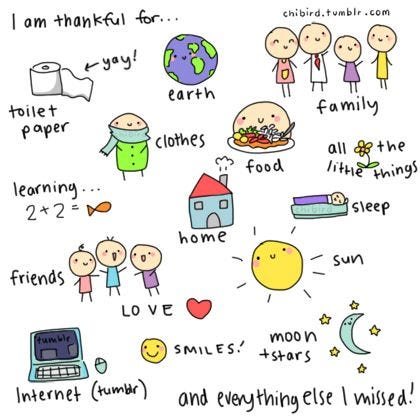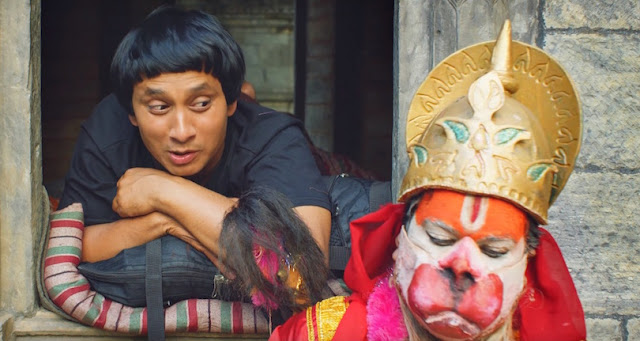A more gentle approach to life through your 20s

From Indiatimes
I felt like I was betrayed by my father, he knew this all along and waited until now to tell me ??
Below are the 5 approaches I am planing to take with me in my 30s or anyone who are still suffering in their 20s can think on.
- You are not supposed to make “big” right after you graduate:
My general idea of professional progression was something like this: once I graduate and I am in my mid 20s, I will be making a lot of money ( I was delusional, I know now). That shaped many of my actions before I graduate which was not very supportive for learning things.

If you analyze the time frame, you can see what will make you better at doing things and eventually making “big”. There are two zones on how we do things: learning zone and performance zone. Generally speaking, while we are in college(in your 20s) we should be more focused on learning zone. In this zone we are expected to make mistakes, learn from them and improve. Whereas the performance zone is where we apply our learning to minimize mistakes. During our 20s we have less risks of messing up something at large scale, so it’s perfect time to focus on learning zone which will maximizes our growth and our future performance. If we set our mind on making big right after graduation, we tend to be more on performance zone more than learning zone where we are worried on how we come out and measure our worth in not making mistakes.
Even after gradation these two zones goes parallel for quite some time, there will be more learning than performance if anything. Our “making big” journey largely depend on how much we have invested in learning zone and it takes time. It’s frustrating at times but it’s natural to have a growth that is slow. This could be a healthier way of imagining professional progression in comparison to hitting the dream income or status during our 20s.
2. There are more than one dimension to invest your time in:
I come from a very modest family. Our family ties and neighbors hold some specific belief where if you are good in your academics you choose science(not everyone but I am generalizing here). If you are better than average you aspire to become doctor and if not, engineer. However, if you can’t make it to both and also if your family can’t afford to get your enrollment with donations, you study “pure science”. Pure Science is a pursuit of making your way to some prestigious college abroad for PhD, settle there and never come back. However, if you want to make money, you can also study Chartered Accountancy. And if you have studied anything other than science, you long to get a government job and hope for a comfortable corrupt life. Having said that, anything you choose will have a subtle desire to get settled in another country for financial security.
You can ask how am I deducing this, because I DID everything on the list on that specific order and failed at everything. I always feared being judged on what I study or what I work for. So, I have always chosen the profession that will put me in “oh-so-good-status” in society. While I always loved science, the motivation for the decisions I made were based on one dimension: work (which is depended on money). While I did not have a terrible social life during my 20s, I certainly did not think of investing more time on other dimensions of life. Even though, career is one big time investment we do in our life, it certainly is not the only one. I don’t think excelling in every dimensions is the point as well. The point is to invest in other dimensions as well. And these things does not have to be mutually exclusive. Investing in different dimensions other than your study and work leads to a more fulfilling life.
One day my husband asked me to name different dimensions where we can grow ourselves and I could not name more than 6 dimensions. Below are 15 we got to explore upon thinking. Let me know how many you could name without going through the list.

- Career
- Mental health
- Physical health
- Self-awareness
- Finance
- Family
- Friendship
- Community
- Creative pursuits
- Skills and hobbies
- Discipline
- Reputation
- Courage
- Cleanliness
- Wisdom
3. You don’t have to assume the obvious as obvious:
As I started adulting ( is that a word??), this one was the hardest for me to learn. I had always believed in institutions and how they are established to help people who work for it. It got washed away partly due to my disappointment from political ideologies failing to work and partly due to my encounter with the real world or me being more observant. I began to see how things work and how it is different than what it would be. These things might sound very anti-social but bear with me. I lived my 20s with roughly these two beliefs which I thought was obvious. First is, those in authority know what they are doing, know what is good for us and speak on behalf of our long term interest. Second is, we just need to obey and jump through the hurdles they have set for us and we will thrive. This is because I believed there is a curriculum which list out all the routes one need to take to succeed and a wise person will dutifully subscribe to it.

However, these things are not obvious to be true. People at authority may not know the best thing for you and most of the time they are wrong. And it is okay to be skeptic or even challenge the way they have been working. We can find a better way of doing things even if it has been working for ages. When I realized this, I started to do things mindfully and not just because I have seen things work that way. Secondly, there are no rule books and curriculum which will evaluate your worth as you deserve. There is no one going about measuring your struggles and awarding you for your hard work like they do in schools and colleges. The linear progression in life is a disillusion concept and I did not see it when I was young. I always thought that every hard work I put in should yield something every time, hence making my life significantly better. I had to let go of this concept to allow more space to learn and try new stuff even when it was unconventional.
4. You can’t expect your loved ones to know the “whole you” without going through difficult conversation:
This one might be the biggest mistake I made during my 20s and I am still working on it to improve. I had this unrealistic expectation of being magically understood. I abided by the notion that if you love me, you should understand me without me saying anything or trying to make you understand. I was even offended at times when I had to explain what I think to my parents, friends or my boyfriend. Most of the time I felt like nobody understood me when in reality I had not tried to make them understand what I think. It was hard to talk about boys with my brother, my religious beliefs with my mom, things I wanted to do in life with my dad and what I wanted from our relationship with my boyfriend. Most of the time I avoided the conversation.

It’s not an easy task to communicate how we feel but with our loved ones we have to do it continuously until both of us understand each other. It’s frustrating and at times seems like it’s not worth it but its the only way to be understood. And even if we are not understood, it is much better than not communicating at all. There are many things which I and my loved ones do not understand about each other, but the fact that we know what other person thinks makes our life much easier.
5. Read more about History, Poetry, Economics, Political ideas, Literature, Philosophy, Physics and Math or just about anything that interests you:
While I was growing up, having good grades was everything. This might be more prevalent in the culture I was in but whatever the reason, studying academics is a serious business and I was made clear about it. But the thing is, anything besides the academic studies was considered a waste of time or a distraction. I was good at my academics but I was horrible and oblivious about other things. While I blamed my ignorance on the culture I grew up in, I felt these blaming comes with an expiry date and I can’t blame it on culture or my parents forever. I had to take the blame on myself, after all I had all the resources to gain information from.

I started reading more on different topics and that gave me a closer look on how world and human function. Reading and being observant on things around you grant a “human super power” to approach a problem in an effective way. The more I began to read, the more I realized that reading about different topics should not be considered a hobby, rather it’s just a way to be human. We, as a race have survived and thrived on earth because we could transfer knowledge. Not reading would be refusing to learn how we have been solving problems and how we have been failing to do so. It is such an obvious thing to mention that we do not read and learn just to do our jobs, we do it for the thrill of knowing things which makes us human and this should not just be a hobby.

Lastly, I am glad I am in my 30s now. This reminds me of a song I heard someone sing (An Evening of Awesome at Carnegie Hall)
“It’s good to be young but let’s not kid ourselves, it’s better to pass on through those years and come out other side with our heart still beating, having stared down the demon and come back bleeding."



Comments
Post a Comment
thanks for reading :)
drop comments...